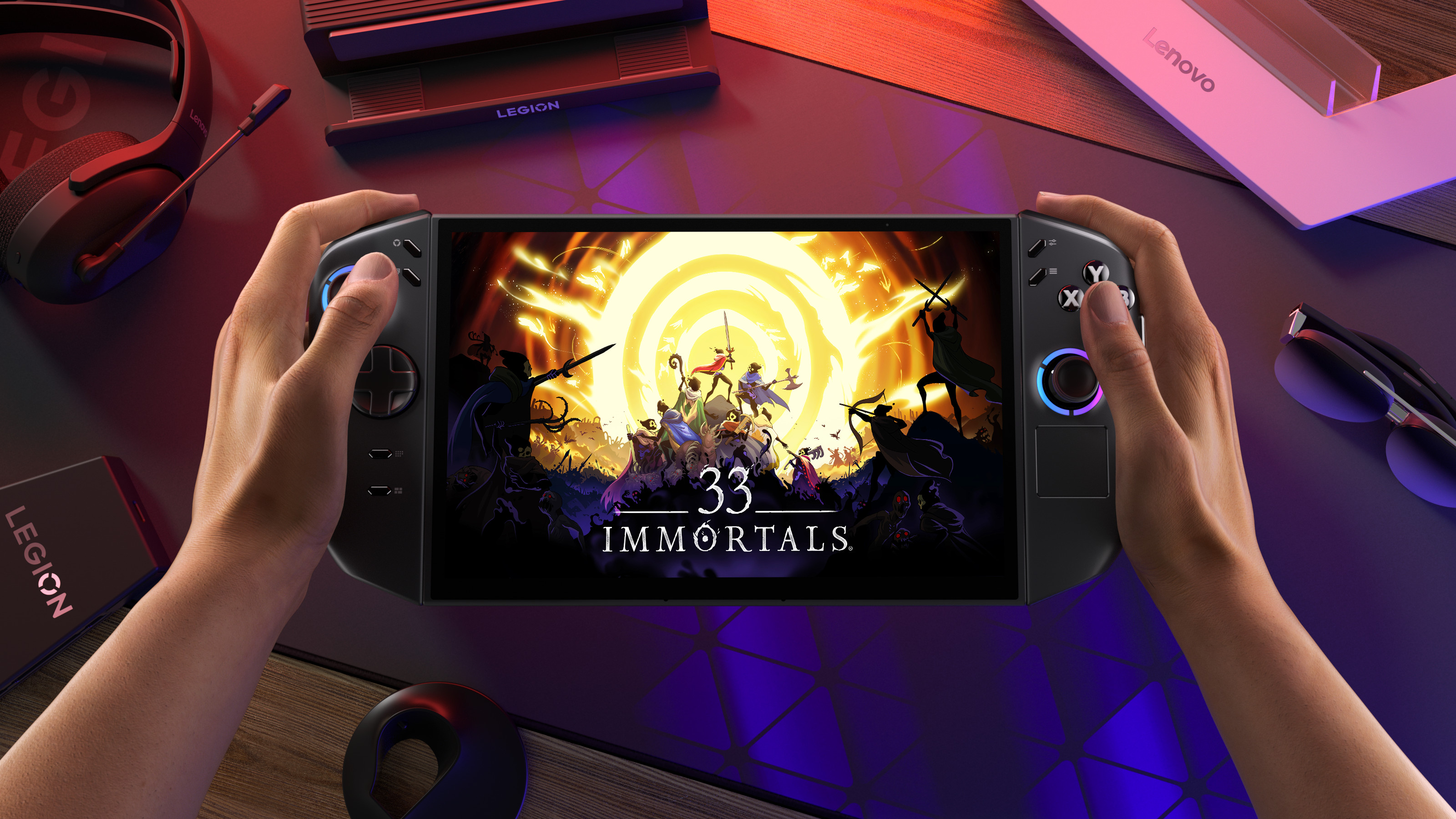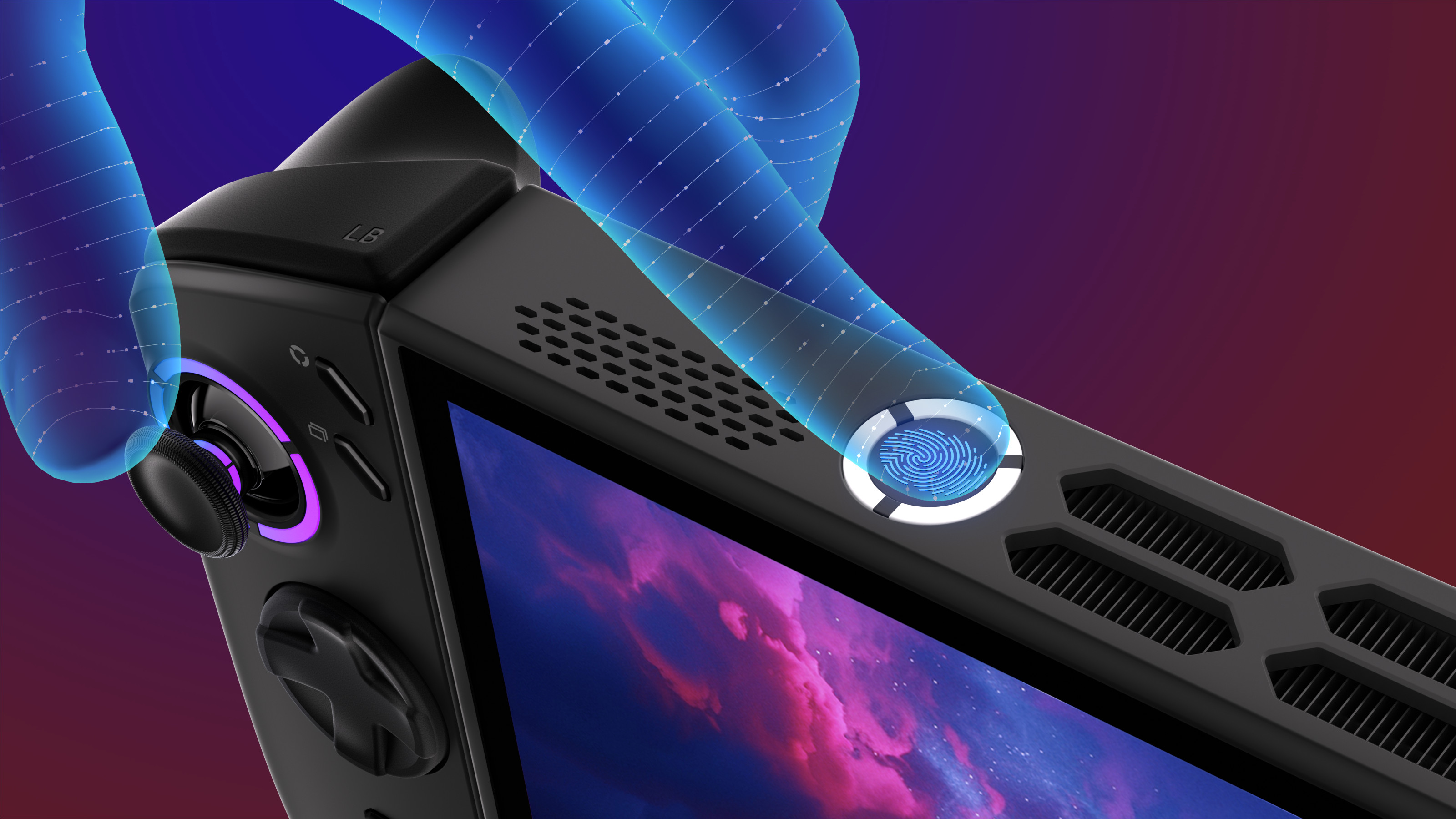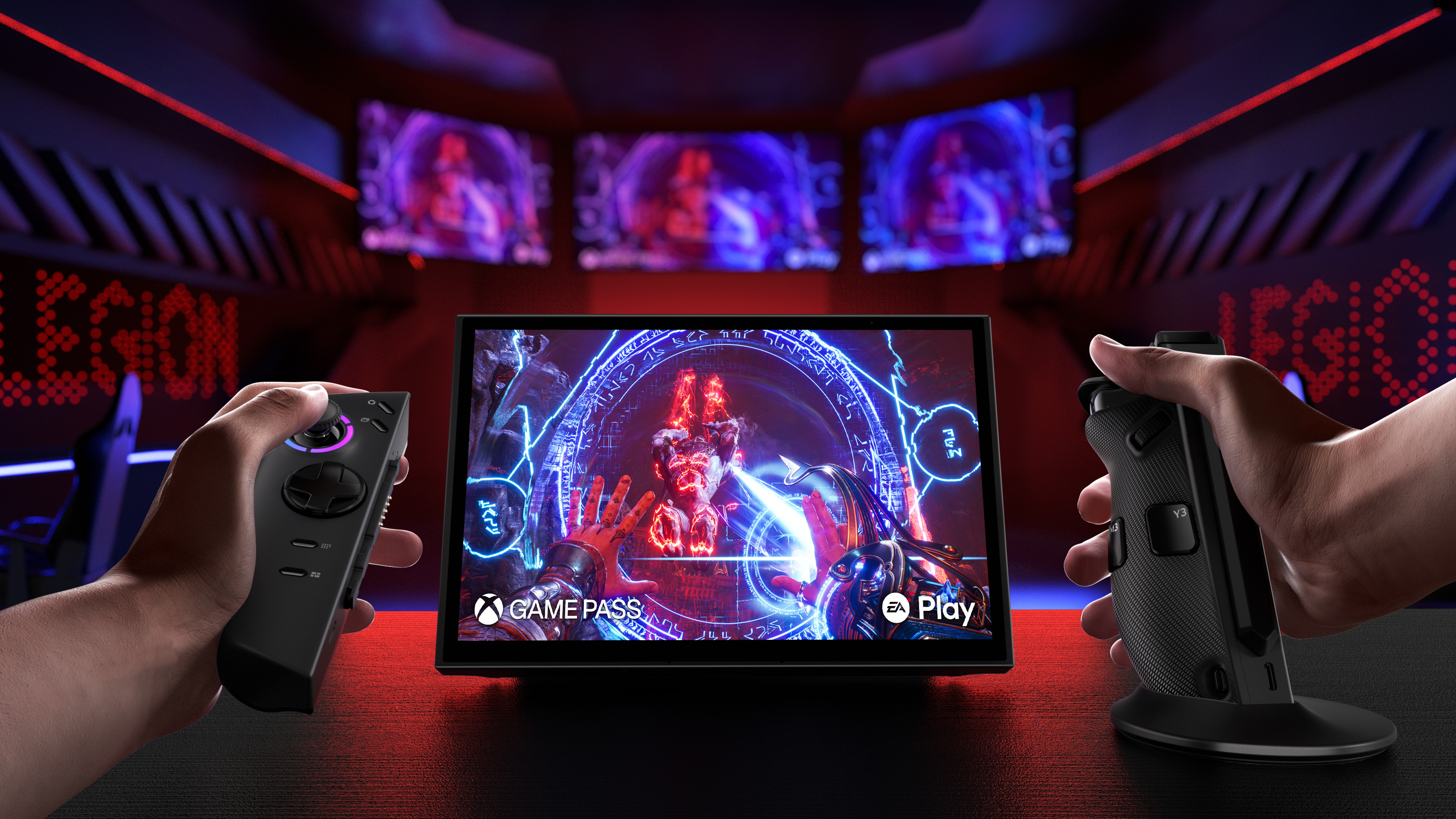Lenovo reveals Legion Go 2 with OLED display packing 144Hz refresh rate and VRR - and a big boost for battery life
A much bigger battery, plus the resolution on that screen has been dropped, meaning better longevity on-the-go

- Lenovo's Legion Go 2 has been unveiled packing an OLED screen
- That display has a 144Hz refresh rate with VRR support, but drops down the resolution compared to the original
- The Legion Go sequel also has a considerably beefier battery
Lenovo has unleashed its second-gen Legion Go gaming handheld at its Innovation World 2025 event among all the IFA 2025 revelations.
The Legion Go 2 looks much the same as the original Windows 11-powered portable and keeps the 8.8-inch screen, but it's been upgraded to an OLED panel. However, as rumored it drops the resolution down from the current 1600p to 1200p (known as WUXGA, 1920 x 1200).
The new display features a 144Hz refresh rate with VRR (variable refresh rate) support for smoother gaming, and it has HDR TrueBlack 1000 certification, so it should deliver punchy and vivid colors with deep blacks (as you'd expect with an OLED).
Under the bonnet, we have the AMD Ryzen Z2 processor - or Ryzen Z2 Extreme for more grunt - and the handheld can be configured with up to 32GB of system RAM (at 8000MHz).
For storage, the Legion Go 2 can be equipped with up to a 2TB PCIe 4.0 SSD, and a microSD slot lets you expand up to another 2TB of space.
Lenovo has also given the battery an upgrade so it's now a 74Whr effort, up from 49Whr on the original Legion Go, which is a 50% boost in capacity.
As noted, the design remains much the same, although the device is a bit thicker and heavier (with closing on a 10% weight increase - it's now 920 grams). There are some fresh twists on the formula, too, like a fingerprint reader in the power button for swift biometric logins.
Sign up for breaking news, reviews, opinion, top tech deals, and more.

Furthermore, the Legion TrueStrike controllers have been tweaked to provide what Lenovo describes as "more ergonomic lines, a smoother feel, and a smarter button layout" - there are three programmable buttons that can be customized to your liking.
The new TrueStrike controllers are backwards compatible with the previous device, so if you want to use them with a first-gen Legion Go, you can do just that.
Lenovo has set the starting price at $1,049 in the US for the base model, with the handheld going on sale in October.

Analysis: more punch in your portable - and more battery life
All in all, there's some punchy new hardware here, and that OLED screen is doubtless going to ramp up the quality of the portable gaming experience on offer - driven by that beefier AMD CPU.
Some people may be disappointed that Lenovo has dropped the resolution of the screen, and I get where they're coming from - but I'm guessing the display is not going to disappoint.
Also remember that particularly with handhelds, frame rates and battery life are major concerns - and dropping to 1200p is going to help achieve more fluid gameplay, and better battery longevity. Speaking of the latter, we've got a much bigger power pack on board here, too, so overall that should be a big boost in staying power when gaming on the move.
The asking price being bumped to $1,049 is a bit of a stinger, though it was rumored - it's a big increase compared to the first-gen portable and some gamers may find it too expensive for their tastes.
You might also like...
- The Nintendo Switch 2 is fantastic – so why do I keep getting drawn back to my Steam Deck?
- A reliable leaker claims that there will be a PlayStation 6 handheld with one of my favorite Nintendo Switch 2 features
- Early Asus ROG Xbox Ally X benchmark suggests excellent power efficiency and cooling – but I'm still not sold on the handheld
Darren is a freelancer writing news and features for TechRadar (and occasionally T3) across a broad range of computing topics including CPUs, GPUs, various other hardware, VPNs, antivirus and more. He has written about tech for the best part of three decades, and writes books in his spare time (his debut novel - 'I Know What You Did Last Supper' - was published by Hachette UK in 2013).
You must confirm your public display name before commenting
Please logout and then login again, you will then be prompted to enter your display name.